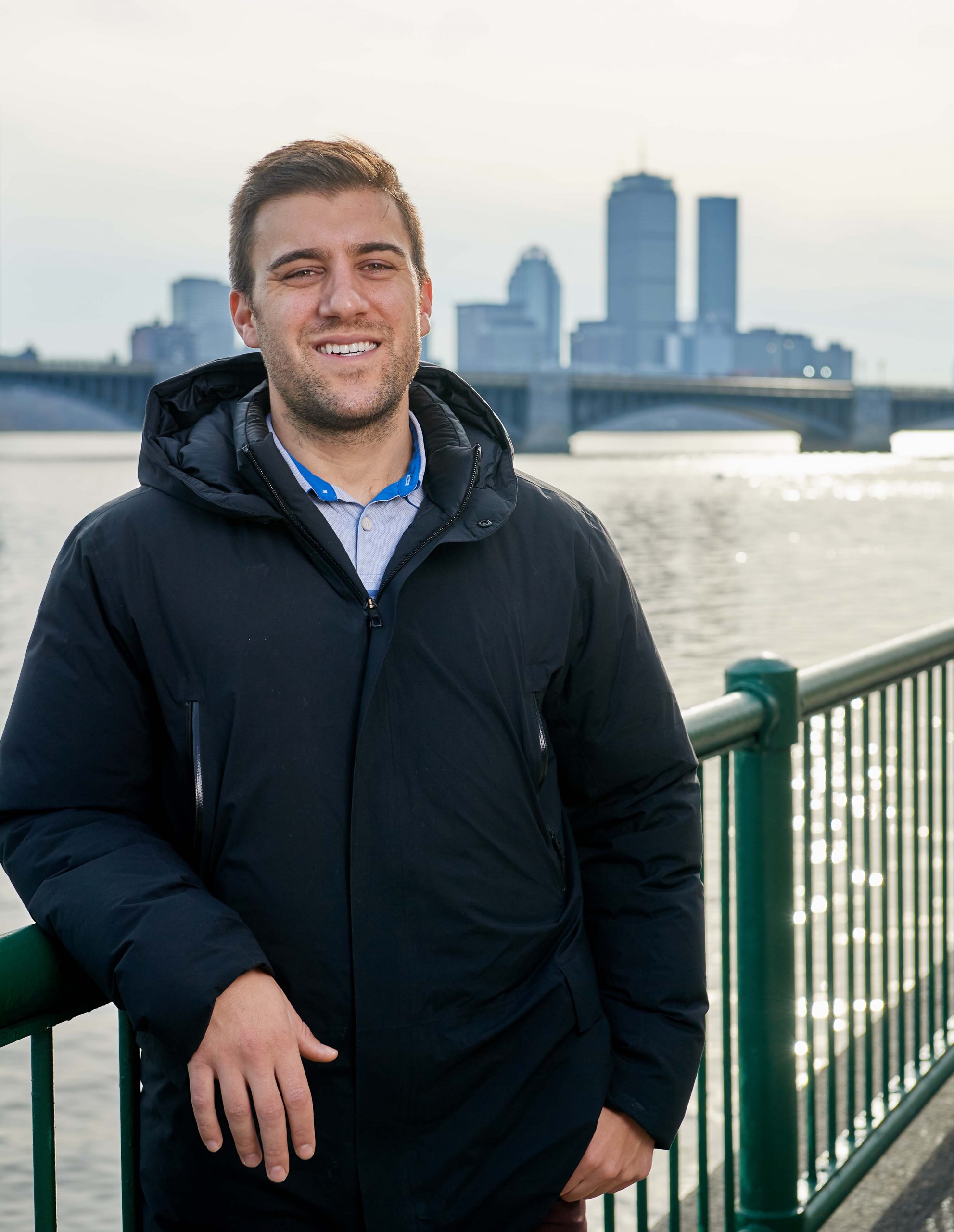In the Vaccine Trenches

Jason Bennett in Cambridge, Massachusetts, where he now works. But soon after graduating, Bennett took a job at Pfizer and found himself helping develop the Covid vaccine.
Not long after graduating with a degree in molecular and cell biology, Jason Bennett '16 (CLAS) took a job with the pharmaceutical giant Pfizer. As an associate scientist in the company's Clinical Diagnostics and Assay Development Department in Pearl River, New York, he helped develop procedures to measure and test different drugs and biochemical agents. It was interesting if relatively routine work, part of the elaborate process by which big pharma creates, assesses, and brings treatments to market. Then Covid happened and overnight everything changed. Now working as an automation engineer at Foundation Medicine Inc. in Cambridge, Massachusetts, Jason talked to us about his earlier experience in the vaccine trenches.
How did the pandemic affect your work?
When Covid hit, Pfizer quickly made the decision that it was going to be involved in the race for a vaccine. All the different groups within the company basically were told to drop our current projects and spearhead vaccine development. All of a sudden, it became the job of my group to devise some way to test the efficacy of a trial vaccine.
What was it like to be present at the birth of game-changing mRNA technology?
It was exciting, the fact that what we were doing could change the world. Once the sampling really ramped up for the clinical trial, we were operating from 6 in the morning to 6 at night, and we had groups coming in on Saturday and Sunday. We got it down to where we could do a test in 45 minutes, and we were running 48 samples at a time. At our peak, we did almost 10,000 samples in a week. It was testing, testing, testing.
Was there a point in the process when you thought, these numbers are starting to look good?
There were times when I was like, 'I haven't seen a positive. Are we running placebo? Are these people vaccinated?' You need to get a certain number of positive results, and it was taking us a lot of time. We had to extend our population size because we had not gotten enough positives. So that was a good thing. The vaccine was 95% effective, which was unheard of. But it also meant we couldn't wrap up the testing, because we had not hit the target required by the FDA for approval!
Why did you choose a career in science?
My passion for science was grounded in the desire to make a difference in people's lives. As an undergrad studying molecular and cellular biology, it can seem like you have two career choices. You can go on to get a Ph.D. and become a scientist. Or you go to medical school. People don't realize there's a giant world of biopharma out there where you can try different things and find where your passion lies — research and development, project management. At Pfizer I realized I could get the satisfaction of helping people in different ways. I just didn't realize my contributions would be part of such a big deal.
Talk about a Covid story.
Definitely something I'll tell my kids.
By Kevin Markey
Photo by Peter Morenus

Leave a Reply